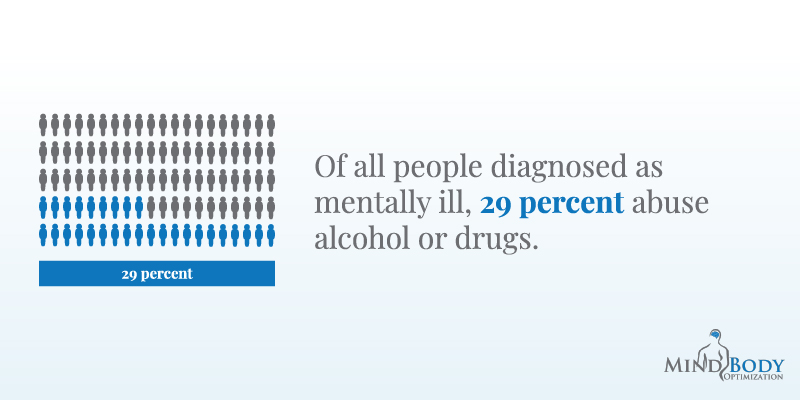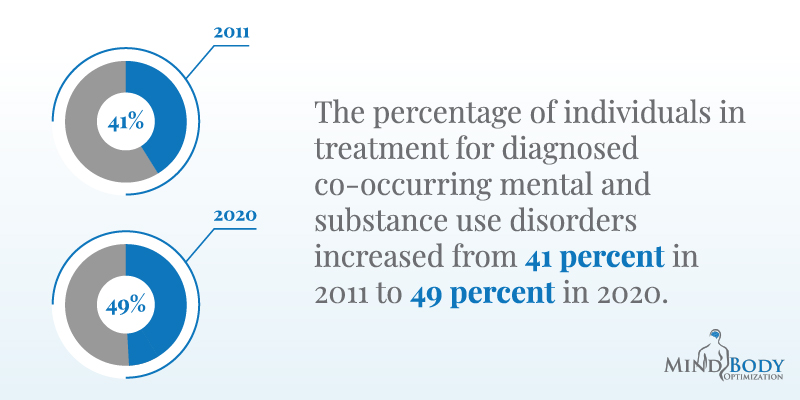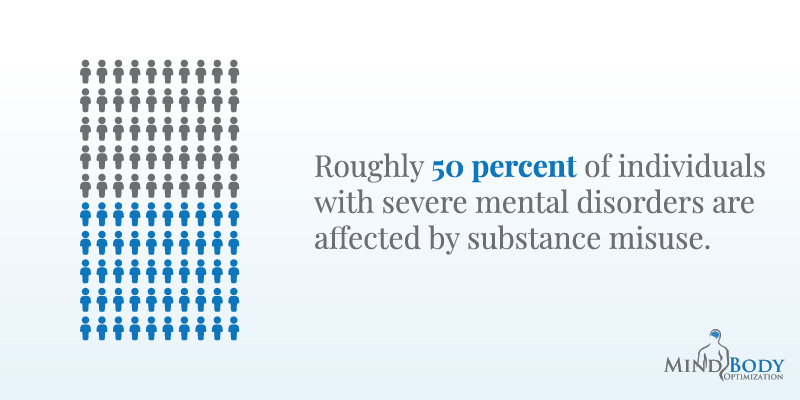Many individuals struggle with both mental health concerns and substance use disorders, highlighting a complex link between the two. A staggering 7.7 million adults in the United States grapple with co-occurring mental and substance use disorders.
This doesn’t imply that one directly causes the other, but rather suggests a more intricate relationship.
While the exact sequence of events might be unclear, recognizing this interconnectedness is vital for providing effective treatment and promoting long-term well-being.
By understanding the interplay between mental health and substance abuse, we can develop more comprehensive treatment approaches that address both issues simultaneously, ultimately improving the lives of those affected.

At MBO, we understand the complexities of navigating both substance use disorder (SUD) and mental health challenges. We are a comprehensive treatment center dedicated to supporting people in healing both mind and body.
"Mind Body Optimization prioritizes a personalized and evidence-based approach to substance abuse therapies. Our professionals conduct thorough assessments to understand individual needs, and treatment plans are tailored accordingly. This ensures that interventions align with each person's unique challenges and supports effective and sustainable recovery for comprehensive physical and mental recovery."
MBO Healthcare Staff Tweet

Dual diagnosis refers to the co-occurrence of a substance use disorder and a mental health condition, such as anxiety, depression, or post-traumatic stress disorder (PTSD).5
This is extremely common, with research suggesting that more than half of individuals (around 65%) with substance use disorders also experience a mental health condition.6
Addressing both conditions at the same time in substance abuse therapies is crucial for effective treatment and lasting recovery.

"Our substance abuse therapies at Mind Body Optimization employ various strategies for relapse prevention, including cognitive-behavioral approaches, mindfulness practices, and developing coping mechanisms. Our professionals collaboratively work with individuals to identify triggers, high-risk situations, and effective coping strategies to navigate challenges and reduce the risk of relapse."
MBO Healthcare Staff Tweet
Individual therapy provides personalized treatment tailored to each person’s needs and goals. It offers a safe space for exploring underlying issues contributing to substance use and developing coping skills.
Family therapy involves the person and their family members in treatment. It addresses family dynamics, communication patterns, and relational issues that may contribute to substance use.
Couples therapy focuses on improving communication and relationship skills between partners. It addresses how substance use affects the relationship and helps couples work together towards recovery.
TMS is a non-invasive procedure that uses magnetic fields to stimulate nerve cells in the brain. It’s being researched as a potential treatment for substance use disorders by targeting specific brain regions involved in addiction.
Nutritional support and counseling address the role of diet and nutrition in supporting recovery from substance use disorders. It focuses on promoting healthy eating habits and addressing nutritional deficiencies that may impact physical and mental well-being.
"Substance abuse therapies incorporate trauma-informed care principles by recognizing the impact of past traumas on addiction. Specialized interventions, such as Eye Movement Desensitization and Reprocessing (EMDR), is used to address trauma histories without re-traumatizing the client, fostering a safer and more supportive environment for recovery."
MBO Healthcare Staff Tweet


Take the first step toward a brighter future. Reach out to us at (682) 503-7500 or schedule a consultation with our compassionate team.